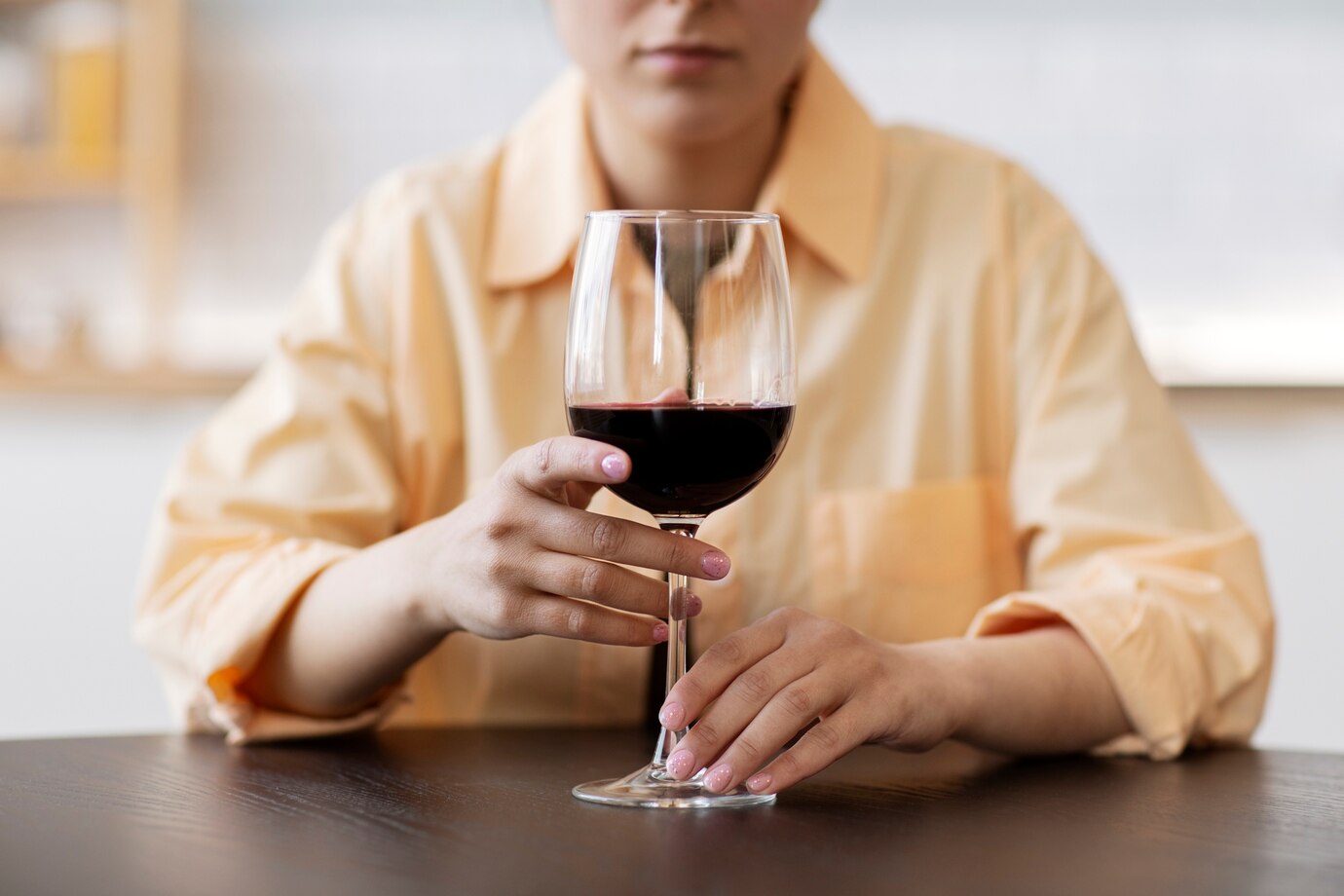
Non Alcoholic Wine While Pregnant: Is it Safe?
Navigating pregnancy involves a myriad of dietary and lifestyle adjustments. Among these, the question of enjoying a glass of wine often arises. But what about non alcoholic wine while pregnant? Is it a safe and enjoyable alternative, or are there hidden considerations expectant mothers should be aware of? This comprehensive guide explores the nuances of non alcoholic wine during pregnancy, providing evidence-based information to help you make informed decisions.
Understanding Non Alcoholic Wine
Before diving into the safety aspects, it’s crucial to understand what non alcoholic wine actually is. Unlike grape juice, non alcoholic wine starts as regular wine, undergoing a process to remove most, but not always all, of the alcohol. Common methods include vacuum distillation, reverse osmosis, and dealcoholization under pressure. The goal is to reduce the alcohol content to a level considered negligible, typically 0.5% Alcohol By Volume (ABV) or less.
The Dealcoholization Process
The dealcoholization process significantly impacts the final product. Vacuum distillation involves heating the wine under reduced pressure, allowing the alcohol to evaporate at a lower temperature, thus preserving more of the wine’s original flavor compounds. Reverse osmosis separates the alcohol and water from the wine’s aromatic and phenolic compounds, which are then recombined after the alcohol is removed. Each method has its advantages and disadvantages in terms of flavor retention and overall quality. Therefore, the taste of non alcoholic wine can vary significantly depending on the process used.
Is Non Alcoholic Wine Safe During Pregnancy?
The primary concern regarding alcohol consumption during pregnancy is the risk of Fetal Alcohol Spectrum Disorders (FASDs). Even small amounts of alcohol can potentially harm the developing fetus. Given that non alcoholic wine can contain up to 0.5% ABV, the question of its safety becomes pertinent.
The 0.5% ABV Threshold
Many health organizations consider products with 0.5% ABV or less to be generally safe. This is because such a small amount of alcohol is metabolized quickly and is unlikely to have a significant impact. However, individual sensitivities and pre-existing health conditions can play a role. Some women may choose to avoid even trace amounts of alcohol during pregnancy, while others may feel comfortable consuming products labeled as non alcoholic.
Potential Risks and Considerations
Despite the low alcohol content, there are several factors to consider:
- Residual Alcohol: While labeled as non alcoholic, these wines may still contain trace amounts of alcohol. If you are particularly sensitive or have been advised to abstain completely, it’s best to err on the side of caution.
- Ingredients and Additives: Some non alcoholic wines may contain added sugars, sulfites, or other preservatives. These ingredients may be a concern for women with gestational diabetes, sulfite sensitivities, or other dietary restrictions. Always check the label carefully.
- Psychological Effects: For some women, the taste and aroma of non alcoholic wine can trigger cravings for alcoholic beverages, potentially making it more challenging to abstain from alcohol altogether.
Benefits of Non Alcoholic Wine
Despite the concerns, non alcoholic wine can offer some benefits during pregnancy:
- Social Inclusion: It allows pregnant women to participate in social gatherings and celebrations without feeling left out. Enjoying a glass of non alcoholic wine can provide a sense of normalcy and connection.
- Flavor and Complexity: High-quality non alcoholic wines can offer complex flavors and aromas similar to their alcoholic counterparts, providing a satisfying alternative to sugary drinks or plain water.
- Antioxidants: Wine, even when dealcoholized, can retain some of the beneficial antioxidants found in grapes, such as resveratrol. These antioxidants may offer some health benefits.
Expert Opinions and Recommendations
Healthcare professionals often provide varying recommendations regarding non alcoholic wine while pregnant. Some doctors advise complete abstinence from all alcohol, regardless of the amount, while others may consider non alcoholic options acceptable in moderation.
Consulting Your Healthcare Provider
The most important step is to consult with your healthcare provider. They can assess your individual risk factors, medical history, and personal preferences to provide tailored advice. This personalized approach ensures that you make the safest and most informed decision for you and your baby.
Guidelines from Health Organizations
Organizations like the American College of Obstetricians and Gynecologists (ACOG) generally recommend avoiding alcohol during pregnancy. However, they do not specifically address non alcoholic wine. Given the potential for residual alcohol, it’s crucial to discuss this option with your doctor.
How to Choose the Right Non Alcoholic Wine
If you decide to try non alcoholic wine during pregnancy, here are some tips for selecting a suitable product:
- Read the Label Carefully: Check the alcohol content, ingredients list, and nutritional information. Look for wines with 0.0% ABV if you want to avoid alcohol entirely.
- Choose Reputable Brands: Opt for brands known for their high-quality dealcoholization processes and commitment to flavor preservation. Research reviews and ratings to find the best options.
- Consider the Flavor Profile: Non alcoholic wines come in various styles, including red, white, rosé, and sparkling. Choose a flavor profile that appeals to you and complements your meals.
- Check for Additives: Be mindful of added sugars, sulfites, and other preservatives, especially if you have dietary restrictions or sensitivities.
Alternatives to Non Alcoholic Wine
If you’re still unsure about non alcoholic wine, there are plenty of other delicious and safe alternatives to enjoy during pregnancy:
- Sparkling Cider: A festive and refreshing option for celebrations.
- Grape Juice: Provides a similar flavor profile to wine without the alcohol. Choose varieties with no added sugar.
- Herbal Teas: A soothing and healthy beverage that can be enjoyed hot or cold.
- Mocktails: Creative and flavorful non-alcoholic cocktails that can be customized to your taste. [See also: Mocktail Recipes for Pregnant Women]
- Infused Water: Add slices of fruit, vegetables, and herbs to water for a refreshing and hydrating drink.
The Bottom Line
The decision to consume non alcoholic wine while pregnant is a personal one that should be made in consultation with your healthcare provider. While the low alcohol content may be considered safe by some, individual circumstances and sensitivities should be taken into account. By understanding the potential risks and benefits, reading labels carefully, and exploring alternative options, you can make an informed choice that prioritizes your health and the well-being of your baby. Remember, when in doubt, abstinence is always the safest approach. Focus on enjoying the many other aspects of pregnancy and celebrating this special time in your life with healthy and delicious alternatives.
Always prioritize your health and the health of your baby. If you have concerns about alcohol consumption during pregnancy, seek guidance from your healthcare provider. This article is for informational purposes only and does not constitute medical advice. [See also: Risks of Alcohol During Pregnancy]
Frequently Asked Questions (FAQs)
Can I drink 0.5% alcohol wine while pregnant?
Whether it’s safe to drink 0.5% alcohol wine (non alcoholic wine) while pregnant is a topic of debate. While the alcohol content is low, it’s best to consult your healthcare provider for personalized advice, as individual circumstances vary.
Is dealcoholized wine safe during pregnancy?
Dealcoholized wine, also known as non alcoholic wine, undergoes a process to remove alcohol. Although most alcohol is removed, trace amounts may remain. It’s essential to read labels carefully and consult with a healthcare professional to ensure it’s safe for you during pregnancy.
What are the risks of drinking non alcoholic wine during pregnancy?
The risks of drinking non alcoholic wine during pregnancy primarily stem from the potential presence of residual alcohol, ingredients, and additives. Even small amounts of alcohol can pose risks to the developing fetus. Additionally, certain ingredients or additives may not be suitable for pregnant women with specific dietary restrictions or sensitivities.
Are there any benefits to drinking non alcoholic wine while pregnant?
Some benefits of drinking non alcoholic wine during pregnancy include social inclusion and the potential retention of beneficial antioxidants. It allows pregnant women to participate in social gatherings and celebrations without feeling left out. High-quality non alcoholic wines can offer complex flavors and aromas similar to their alcoholic counterparts, providing a satisfying alternative to sugary drinks or plain water. Wine, even when dealcoholized, can retain some of the beneficial antioxidants found in grapes, such as resveratrol. These antioxidants may offer some health benefits.
What are some alternatives to non alcoholic wine during pregnancy?
Alternatives to non alcoholic wine during pregnancy include sparkling cider, grape juice, herbal teas, mocktails, and infused water. These options provide refreshing and flavorful alternatives without the potential risks associated with alcohol consumption.
